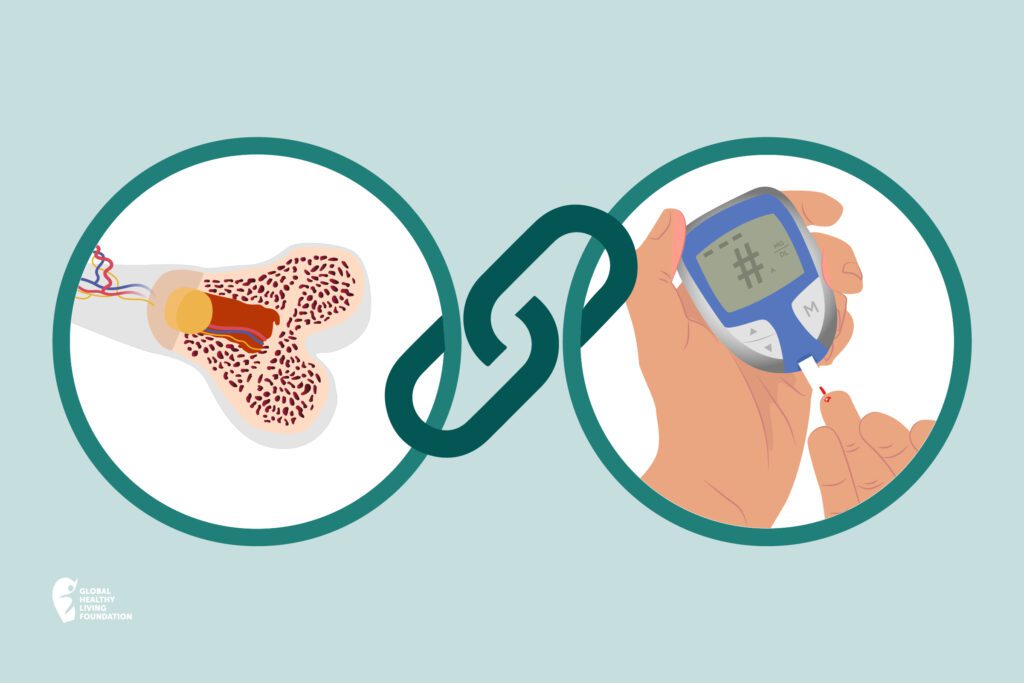Diabetes is a chronic condition that can affect various parts of the body, including your bones and joints. Managing diabetes involves more than just monitoring blood sugar levels; it is also important to address potential complications such as osteoporosis, osteoarthritis, and frozen shoulders. Here’s a comprehensive guide on how you can maintain your bone and joint health while managing diabetes.
The Importance of Preventive Measures
The saying “prevention is better than cure” highlights a fundamental truth: taking proactive steps to safeguard your health can often be more effective than addressing problems after they arise. For those with diabetes, focusing on preventive care can significantly reduce the risk of developing serious conditions that affect the bones and joints. By being mindful of your health metrics and adopting a healthy lifestyle, you can help shield yourself from potential issues.
Adopt a Balanced Diet
A well-rounded diet plays a significant role in maintaining overall health and managing diabetes. A nutritious diet supports your body’s functions and helps you live a healthier life. Essential components of a balanced diet include fruits, vegetables, whole grains, lean proteins, and healthy fats. By nourishing your body with the right nutrients, you can better manage diabetes and support your bone and joint health.
Manage Blood Sugar Levels Effectively
For those with high blood sugar, it is crucial to choose foods that help manage glucose levels. Dry fruits and nuts are good choices as they are generally low in calories and beneficial for blood sugar control. Incorporating these foods into your diet can help stabilize blood sugar levels, which is important for preventing complications related to diabetes.
Stay Physically Active
Engaging in regular physical activity is another key aspect of managing diabetes and protecting bone and joint health. Physical exercise not only helps in managing blood sugar but also strengthens bones and joints. It is also advisable to avoid large meals, caffeine, and alcohol close to bedtime, as these can interfere with both blood sugar control and quality sleep.
Keep Stress in Check
Managing stress is essential for diabetes care. Chronic stress can worsen diabetes and make it more difficult to control your blood sugar levels. Finding ways to manage stress through relaxation techniques, hobbies, or talking to a counselor can be beneficial for your overall health and diabetes management.
Monitor Calcium Levels
Calcium is vital for bone health, and low calcium levels can lead to problems like osteoporosis, fractures, and arthritis, particularly in older adults. Ensuring adequate calcium intake through diet or supplements can help maintain strong bones and reduce the risk of bone-related diseases.
Adjust Medications Wisely
If you are taking insulin or other diabetes medications, be aware that changes in routine, such as during fasting periods or significant life events, may require adjustments to your medication regimen. Always seek advice from a healthcare professional to make informed decisions about any changes to your medications.
Effective Prevention and Management Strategies
Understanding and managing key health behaviors is essential for preventing chronic illnesses and their complications. By making thoughtful lifestyle choices, such as limiting sodium, saturated fats, and added sugars, you can effectively manage diabetes and help prevent or delay bone and joint problems.
Conclusion
In summary, managing diabetes effectively involves more than just controlling blood sugar levels; it includes taking steps to protect your bone and joint health. By focusing on a balanced diet, staying active, managing stress, monitoring calcium levels, and adjusting medications as needed, you can reduce your risk of complications. Always consult with your doctor or a healthcare professional before making significant dietary changes for personalized guidance based on your medical history and current health status.
Note: If you have any health-related concerns, please call us at +91-9058577992 to receive a free consultation from our experienced doctors. Thank you.
